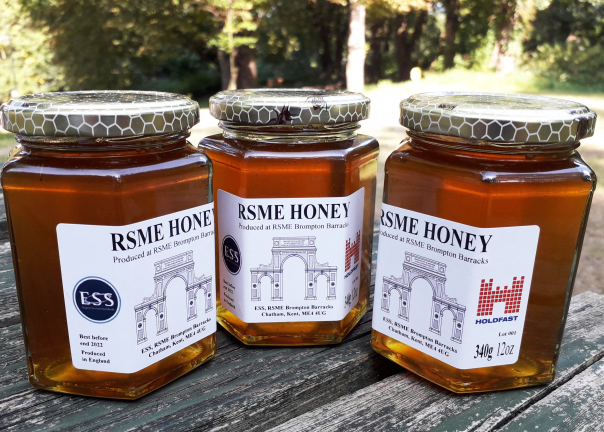
The ESS team introduced two bee colonies as part of a wider sustainability programme on site and within their first season the ESS bees produced 60lbs of honey. Forty thousand bees, including two queens, were introduced in December 2020 and in April 2021 another colony with a further two queens were moved in.
Site representatives from ESS, the MOD and Babcock have completed a 12-week training programme delivered by the British Beekeepers Association and are now qualified to care for the bees.
Luke Kemp, general manager – ESS Defence at RSME, said: “When I walk around the site, it’s lovely to see our honey bees in the gardens where we grow fresh ingredients. So many of the site community have shown an interest in the project and I give our clients an update on the bees at our monthly meeting – as we are learning, they are learning too
“Our success in our first year of beekeeping would not have been possible without the support of many, including our military client, Babcock, our volunteers and Anthony Edwards from the Medway Beekeepers Association.”
The honey has been decanted into 80 jars which are being gifted to the many people who have contributed to the success of the project. The Royal School of Military Engineering (RSME) is now home to around 100,000 ESS bees and the plan is to extend the learning from the site across more establishments.
Mark Webster, managing director – ESS Defence, Energy and Government Services, added: “We need to look after our bees and do everything we can to halt the decline in numbers. I’m incredibly proud of the work our team is doing at RSME – they are leading the way within ESS having successfully introduced two bee colonies, as well as a community garden to grow ingredients and wormeries to process food waste.
“How exciting that we have such a successful model to extend across our business, enabling us to positively impact the biodiversity of the environments in which we operate.”